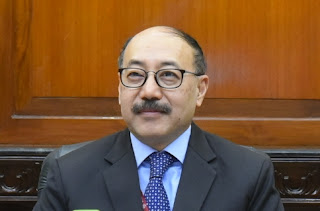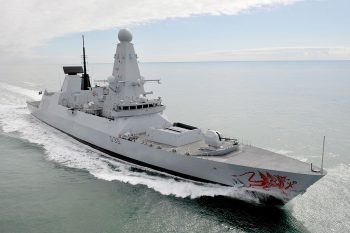Bridge the geopolitical distance with Russia – Observer Research Foundation on GEO´
Bridge the geopolitical distance with Russia – Observer Research Foundation on GEO´
Posted By PR Channel Team – Gibraltar (Remote)
www.geopoliticalmatters.com
Foreign secretary Harsh Shringla’s forthcoming visit to Moscow is a good occasion to examine the relevance of Indo-Russian ties in a world of changing geopolitical equations, greatly accelerated by the Covid-19 pandemic. The year 2020 saw several trends that impacted both India and Russia — the sharpening rivalry between United States (US) and China, the India-China border tussle, the continuing decline in ties between the West and Russia, and the change of guard in Washington.
No issue affected the Indo-Russian relationship as much as the border tensions between India and China. The Chinese aggression, in April/May 2020, in the border areas of eastern Ladakh, brought India-China relations to an inflexion point, but also demonstrated that Russia is capable of contributing to defusing tensions with China. On the other hand, Russia’s seeming equivocation initially diminished its standing among the Indian public.
However, that changed after the first bilateral high-level political contacts between India and China took place in Moscow on the sidelines of a September meeting of the Shanghai Cooperation Organisation. The Indian defence minister, Rajnath Singh, and external affairs minister, S Jaishankar, met their Chinese counterparts on September 5 and 10 respectively. Earlier in June, Singh had visited Moscow to attend the Victory Day Parade. During the visit, he met Russian defence minister Sergey Shoigu and other officials. The Russians promised to positively look at India’s requests for expedited arms deliveries in view of the border conflict, despite some informal appeals against it by the Chinese.
The developments of 2020, preceded by the immensely successful Prime Minister Narendra Modi-President Vladimir Putin Sochi meeting in May 2018 and the pathbreaking Vladivostok summit in September 2019, may give the impression that Indo-Russian ties can be now put into cruise mode, having overcome the earlier hiatus. However, some ongoing geopolitical trends suggest that such a conclusion is premature.
The inflexion point reached by India in its relations with China has driven New Delhi to shed “past hesitations” and actively pursue more hard-nosed policies to protect its perceived national interests. This has included the pursuit of a closer relationship with the US; a determined restart to the Quad process — a coming together of India, Japan, Australia and the US; a clearer enunciation of “a free and inclusive” Indo-Pacific; an energetic neighbourhood policy; as well as intensified outreach to east and west Asia.
Russia, for its part, has, since 2014, faced deteriorating ties with the US-led West following the Ukraine crisis, exacerbated now by the Western reaction to the poisoning and post-recovery jailing of anti-government political activist Alexey Navalny.
Russia responded to these efforts to isolate it, by revving up its own “Pivot to the East”, the most distinct results of which are markedly improved relations with China, and better ties with Turkey (despite a brief hiccup), Iran and Pakistan. Russia, also, has officially been cold towards the concept of the Indo-Pacific, seeing it as a design to contain China. It is important to note, however, that Russia repeatedly reiterates that it does not see itself as anybody’s junior partner. Read More/…
https://www.orfonline.org/research/bridge-the-geopolitical-distance-with-russia/
About the Author: Nandan Unnikrishnan
Nandan Unnikrishnan is a Distinguished Fellow at Observer Research Foundation, New Delhi. He joined ORF in 2004. He looks after the Eurasia Programme of Studies. An alumnus of Jawaharlal Nehru University (JNU), he began his career as a journalist with the Press Trust of India (PTI). From 1985 to 1987, he was deputed by PTI to the Institute for Defence Studies and Analyses (IDSA). In 1995, after 15 years in PTI culminating with a three-year posting to Moscow as the Bureau Chief, he moved to Business India’s Television Channel – TVI. He joined TVI as the News Coordinator for International Affairs rising to head the channel by 1998. During his tenure with ORF, Nandan has participated in several National and International conferences, lectured in academic and specialised institutions in India and abroad. Learn More/..
About the ORF
ORF began its journey in 1990 at the juncture of ideation tempered by pragmatism. During the period of India’s transition to a new engagement with the international economic order, several challenges emerged, evoking a need for an independent forum that could critically examine the problems facing the country and help develop coherent policy responses. ORF was thus formed, and brought together, for the first time, leading Indian economists and policymakers to present the agenda for India’s economic reforms. Learn More/..








